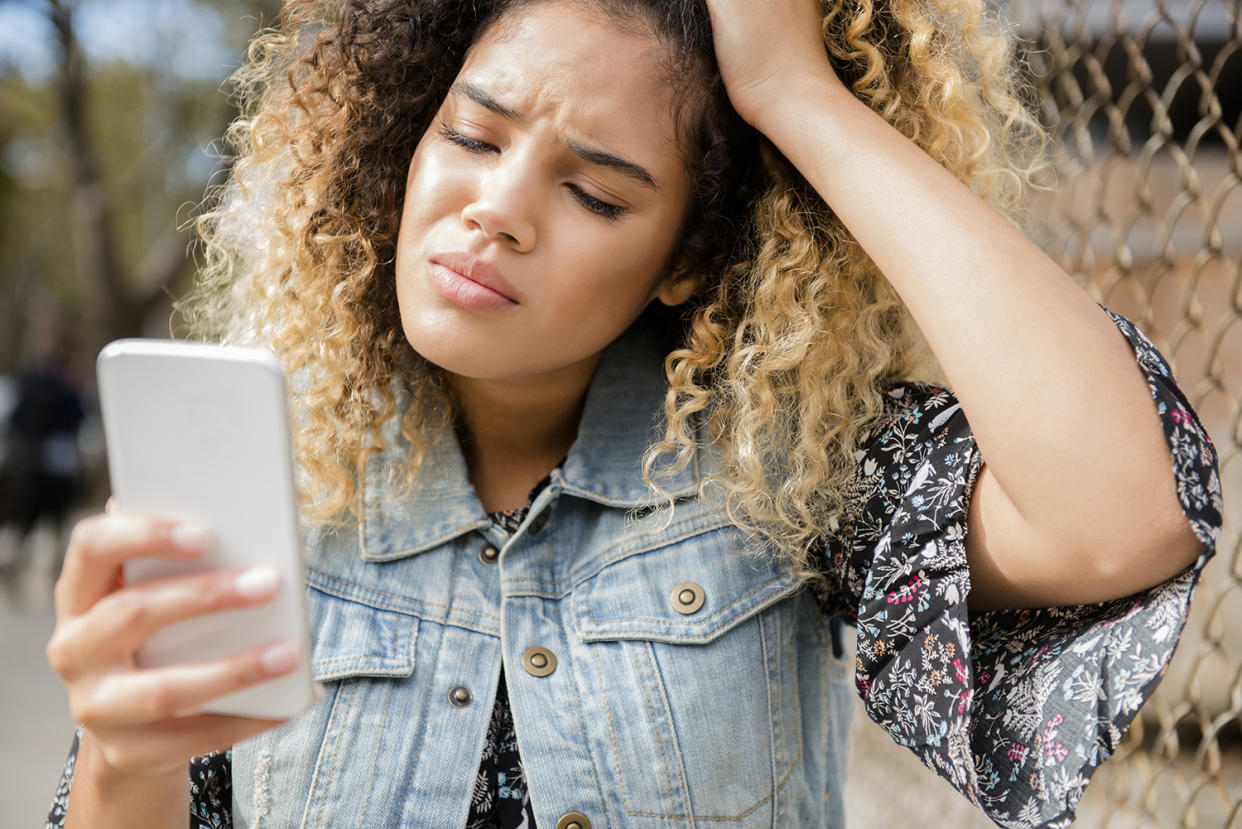Instagram may reveal if someone is depressed

There may be more to your social media posts than meets the eye.
According to new research published in the journal EPJ Data Science, the images displayed on someone’s Instagram account may be an indicator of depression. In order to test this theory, scientists gathered 43,950 photos taken from the feeds of 166 individuals. Nearly half of these participants reported having been clinically depressed within the last three years.
The investigators analyzed the pictures by referring to information obtained from psychological research, as well as by taking into account the volunteers’ preferences for brightness, color, and shading. And as a result, they discovered the following:
Depressed individuals were more likely to post photos that were bluer, darker, and grayer compared with healthier individuals. “In other words, people suffering from depression were more likely to favor a filter that literally drained all the color out of the images they wanted to share,” wrote the authors.
Depressed people tended to opt for the filter Inkwell, which turns a photo black-and-white, while healthier people chose filters that offered a brighter tone, such as Valencia.
Depressed people were more likely to post photos with faces, yet these photos had fewer faces on average than the healthy people’s Instagram feeds.
In another portion of the study, the researchers instructed volunteers to distinguish between Instagram posts made by depressed people versus healthy. While they were able to “diagnosis” a number of individuals properly, the statistical computer model performed with more accuracy. In fact, the algorithm’s detection rate of 70 percent was even more reliable than the 42 percent success rate of doctors diagnosing depressed patients.
“This points toward a new method for early screening of depression and other emerging mental illnesses,” says co-study-author Chris Danforth, a professor at the University of Vermont, in a press release. “This algorithm can sometimes detect depression before a clinical diagnosis is made. … This study is not yet a diagnostic test, not by a long shot, but it is a proof of concept of a new way to help people.”
Joe Taravella, PhD, licensed clinical psychologist and clinical assistant professor at NYU School of Medicine, tells Yahoo Beauty that the link between social media and mood is a complicated issue that deserves additional research.
“Although we may think individuals who are depressed may be less likely to engage in social media posts, it may be a way for them to reach out to others and maintain a connection via social media,” he states. “A study in 2016 by Jaime Sidani, PhD, and colleagues [published in the journal Depression and Anxiety] found that people who often use social media tend to have higher rates of depression.”
Taravella adds that while using the computer algorithm method for diagnosing depression “may be encouraging news for earlier detection of mental illness,” he understands how a medical doctor may have difficulty in diagnosing patients.
“General physicians may ask a myriad of questions relating to their patients’s overall health and well-being, but not consistently focus on their mood,” he explains. “Patients may shy away from mental health issues when speaking to their general physician and feel less stigmatized in front of a computer. Additionally, physicians may not follow a very specific set of ‘formulated’ questions as done by a computer.”
Overall, Taravella believes this latest research holds a valuable take-home message.
“It is creating more awareness in the area of mental health, as well as better detection methods for mental illness with the advancement of artificial intelligence,” he concludes. “It is beneficial for all of us to be having annual discussions with our primary care physicians regarding our physical and mental health. We need to move beyond the ‘checklist’ screening and create the comfort of an open and honest dialogue to enhance patient physical and mental health.”
Read more from Yahoo Style + Beauty:
Ashley Graham Responds to Social Media Body Shamers: ‘Don’t Put Your Insecurities Onto Other People’
How Taking Photos Affects Your Memory of the Moment Later On
Follow us on Instagram, Facebook, and Pinterest for nonstop inspiration delivered fresh to your feed, every day. For Twitter updates, please follow @YahooStyle and @YahooBeauty.
